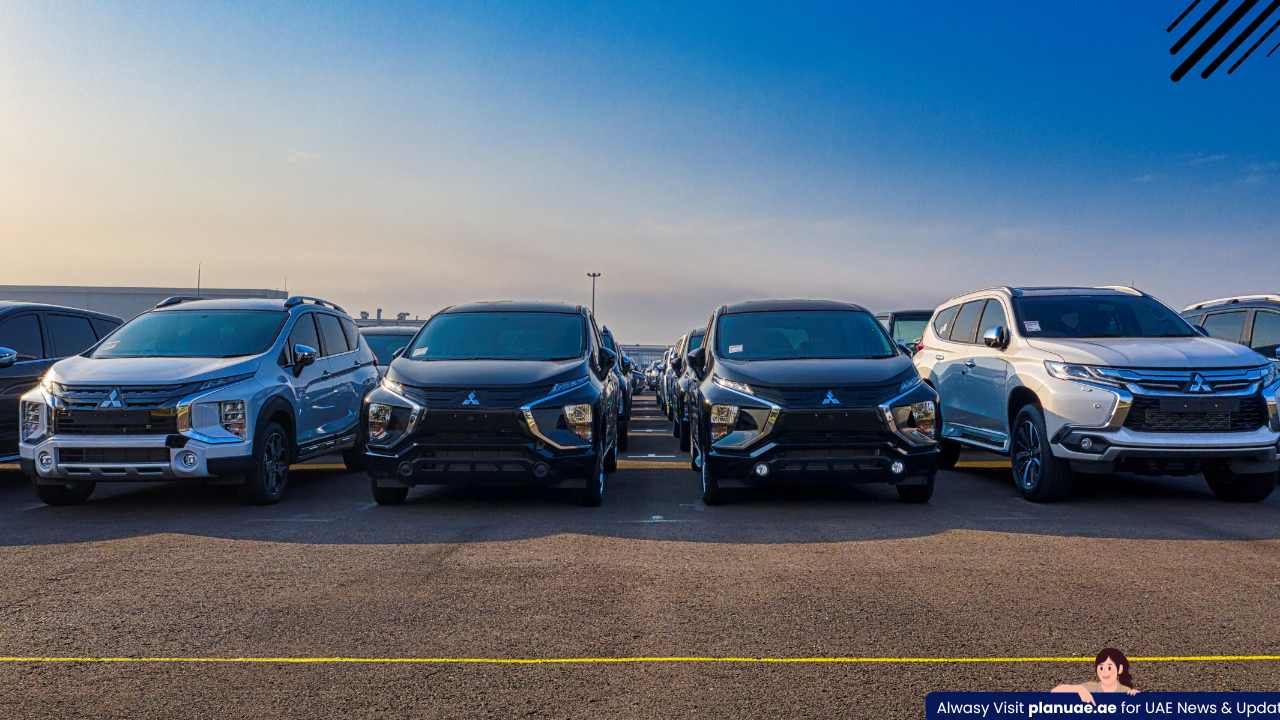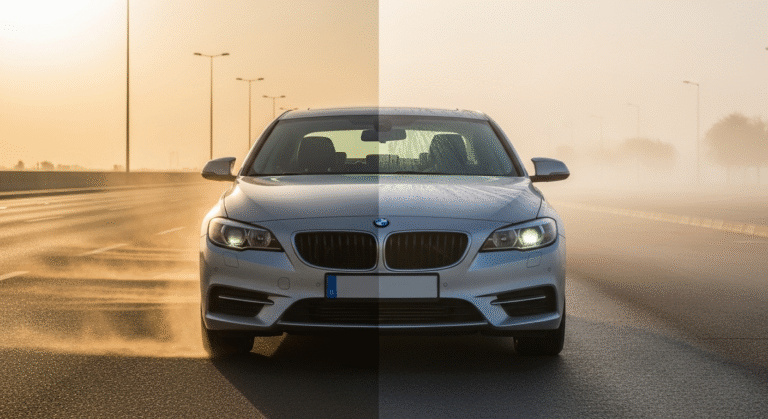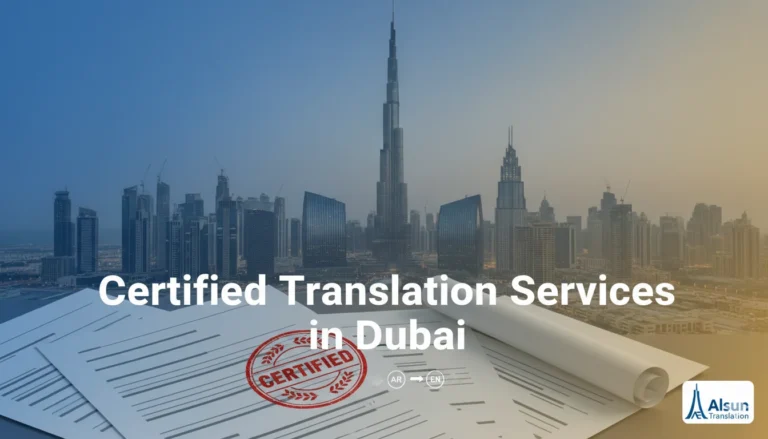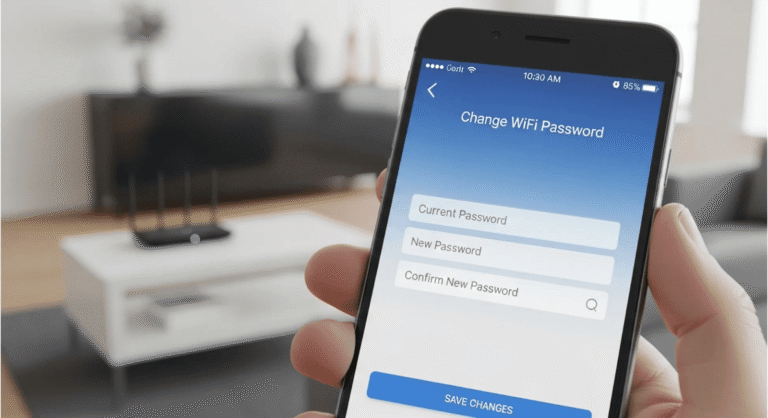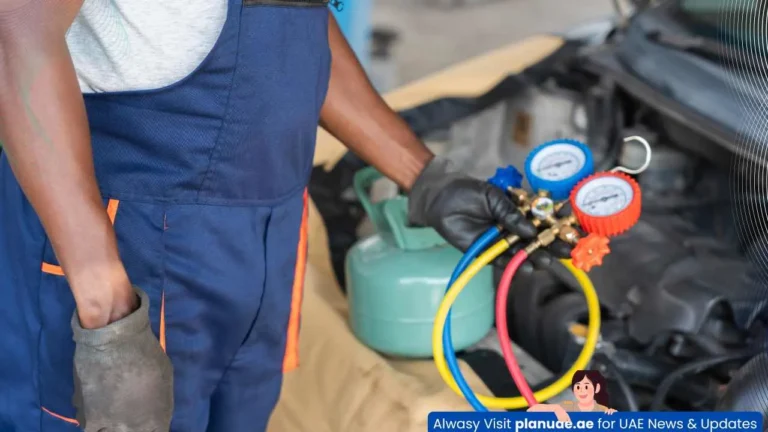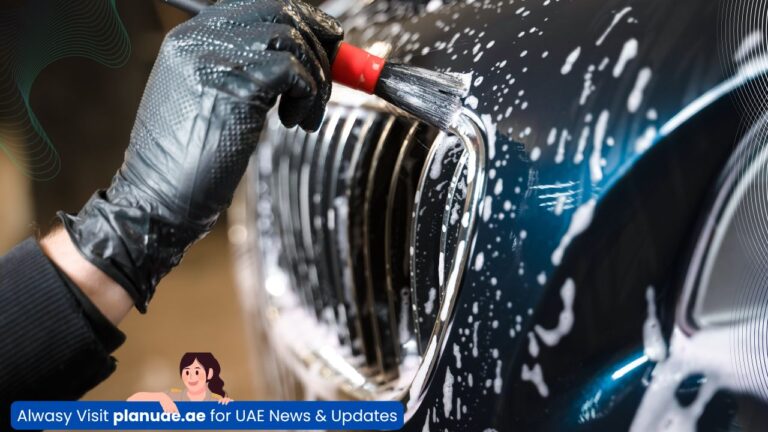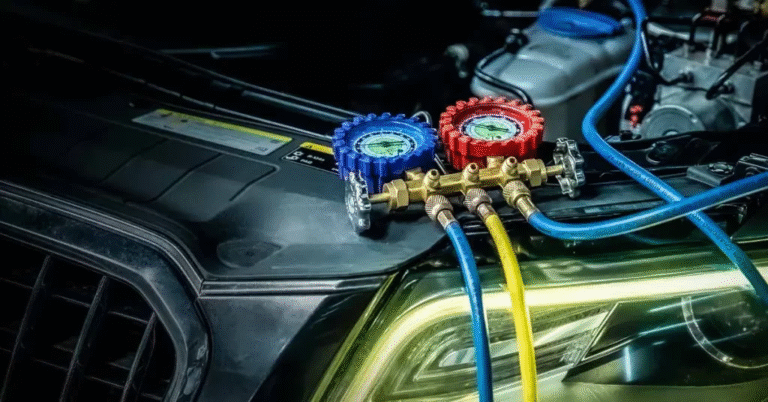(Sponsored Article)
Living in Abu Dhabi means experiencing some of the most challenging driving conditions in the world. The combination of intense desert heat, frequent sandstorms, and fine dust particles creates a hostile environment for your vehicle.
Whether you’re navigating the industrial streets of Mussafah or cruising along the Corniche, your car faces constant assault from sand and dust that can damage paint, clog filters, and accelerate wear on critical components.
For those seeking reliable car repair in Abu Dhabi, understanding how to protect your vehicle from environmental damage is essential. This comprehensive guide will show you exactly how to shield your car from sand and dust using proven maintenance strategies, smart parking techniques, and proper filter care – all tailored specifically for Abu Dhabi’s unique climate.
Why Sand and Dust Are Your Car’s Biggest Enemies in Abu Dhabi

Before diving into protection strategies, let’s understand exactly what you’re up against. Abu Dhabi’s desert environment creates perfect conditions for automotive damage:
Fine Dust Particles act like microscopic sandpaper. When they settle on your paint and you attempt to wipe them off dry, they create thousands of tiny scratches called swirl marks. Over time, this dulls your paint’s finish and reduces your car’s aesthetic appeal and resale value.
Sand Accumulation doesn’t just affect surfaces. It infiltrates every opening in your vehicle – air intakes, door seals, window channels, and even the engine compartment. Once inside these areas, sand causes accelerated wear on moving parts, clogs ventilation systems, and compromises the integrity of protective seals.
Temperature Extremes compound the problem. Abu Dhabi’s summer temperatures regularly exceed 45°C, causing rubber door seals and window gaskets to become brittle and crack. These compromised seals allow even more dust to enter your vehicle’s interior and mechanical systems.
Sandstorm Season (typically March through April, but can occur year-round) brings visibility-reducing clouds of abrasive particles that can strip paint, crack windshields, and completely clog air filtration systems in a single event.
The combination of these factors means your car needs proactive protection – not just reactive cleaning after damage occurs.
Essential Filter Maintenance: Your First Line of Defense
Your car’s filtration system is the primary barrier between harmful desert particles and your vehicle’s vital components. In Abu Dhabi’s dusty environment, filter maintenance becomes absolutely critical.
Engine Air Filter: Protecting Your Engine’s Lungs

The engine air filter prevents dust, sand, and debris from entering your engine’s combustion chambers. When this filter becomes clogged – which happens rapidly in Abu Dhabi – your engine suffers reduced performance, decreased fuel efficiency, and potential long-term damage.
How often should you replace it? While manufacturers typically recommend replacement every 15,000-30,000 km, Abu Dhabi drivers should check their engine air filter every 8,000-10,000 km. If you frequently drive on dusty roads in Mussafah’s industrial areas or venture into the desert, consider checking it even more frequently.
Warning signs of a clogged engine air filter:
- Reduced acceleration and engine power
- Decreased fuel economy (you’ll notice you’re filling up more often)
- Engine misfiring or rough idling
- Check engine light illumination
- Black smoke from the exhaust (in severe cases)
Pro Tip: If you’re mechanically inclined, removing and inspecting your engine air filter takes just five minutes. Hold it up to sunlight – if you can’t see light passing through it, it’s time for a replacement. However, don’t attempt to “clean” disposable paper filters by blowing compressed air through them; this damages the filter media and reduces effectiveness.
Cabin Air Filter: Breathing Clean Air Inside Your Car
While your engine air filter protects mechanical components, the cabin air filter guards your health. This filter cleans the air entering your vehicle’s interior through the ventilation system, trapping dust, pollen, and pollutants.
In Abu Dhabi’s dusty environment, a clogged cabin air filter creates several problems:
- Reduced airflow from your AC vents (especially noticeable in summer when you need maximum cooling)
- Musty odors inside the vehicle
- Increased dust accumulation on your dashboard and interior surfaces
- Aggravated allergies and respiratory issues for you and your passengers
- Strain on your AC system, potentially leading to expensive repairs
Replacement schedule for Abu Dhabi: Every 10,000-15,000 km or annually, whichever comes first. If you notice reduced AC performance or increased interior dust, replace it immediately, regardless of mileage.
Location matters: Many drivers don’t realize that cabin air filters are usually located behind the glove box or under the dashboard. Replacing them is typically a straightforward DIY task that takes 10-15 minutes, potentially saving you AED 100-200 in service fees.
Fuel Filter Protection in Sandy Conditions
While less frequently discussed, your fuel filter also deserves attention in Abu Dhabi’s environment. Sand and dust can contaminate fuel, especially at older or poorly maintained filling stations.
Replace your fuel filter every 30,000-50,000 km, or sooner if you experience:
- Difficulty starting the engine
- The engine sputters at high speeds
- Loss of power when accelerating
- Unexpected engine stalling
For vehicles frequently operating in Mussafah’s industrial zone or desert areas, consider replacing the fuel filter at the lower end of this range.
Seal Inspection and Maintenance: Keeping Sand Out

Your car’s door seals, window gaskets, and weather stripping form a critical barrier against dust infiltration. Abu Dhabi’s extreme heat accelerates the deterioration of these rubber components, creating entry points for fine desert sand.
Door Seal Maintenance
Inspection routine: Every month, visually inspect all door seals for:
- Cracks or splitting (especially along fold lines)
- Hardening or loss of flexibility
- Gaps where the seal doesn’t contact the door frame properly
- Dust accumulation in the seal channels (indicating air leaks)
Cleaning and conditioning: Every two weeks, especially during summer months:
- Wipe down all door seals with a damp microfiber cloth to remove accumulated dust and sand
- Apply a silicone-based rubber conditioner or protectant (avoid petroleum-based products, which can degrade rubber)
- Pay special attention to the seals on your driver’s door, which experiences the most use
- Check that the drainage holes at the bottom of door frames aren’t clogged with sand
Replacement timing: If you notice persistent wind noise, water leaks during car washes, or visible deterioration, replace the seals promptly. Waiting too long allows dust to damage your interior and can lead to more expensive repairs.
Window Channel and Windshield Seal Care
The channels your windows slide through and the rubber surrounding your windshield are equally vulnerable to sand damage.
Window channel maintenance:
- Use compressed air to blow out sand accumulated in the window tracks (you’ll be surprised how much comes out)
- Apply silicone spray lubricant to the channels monthly to ensure smooth window operation and create a protective barrier against sand
- Never force windows up or down if they’re binding – sand may be causing the obstruction
Windshield seal inspection: Check the rubber gasket around your windshield quarterly for deterioration. A failing windshield seal can allow:
- Dust infiltration into the cabin
- Wind noise at highway speeds
- Water leaks that damage electronics and create musty odors
- Potential windshield loosening in the event of an accident
If you notice any issues, have a professional assess whether you need seal replacement or complete windshield reinstallation.
Smart Parking Strategies for Maximum Protection

Where and how you park your vehicle dramatically affects sand and dust exposure. Implementing intelligent parking strategies can reduce cleaning frequency and extend your car’s lifespan.
Covered Parking: The Gold Standard
Whenever possible, use covered or underground parking. This single decision provides:
Temperature benefits: Your interior surfaces and dashboard won’t suffer UV damage and cracking. Your car will be significantly cooler when you enter it (often 10-15°C cooler than vehicles parked in direct sun).
Dust protection: Even basic covered parking reduces dust accumulation by 60-70% compared to open-air parking. Underground parking facilities provide even better protection.
Paint preservation: Protection from direct sun prevents paint oxidation and fading, maintaining your car’s appearance and resale value.
Popular covered parking locations in Abu Dhabi:
- Mall parking structures (Yas Mall, Marina Mall, Al Wahda Mall)
- Corniche underground parking
- Residential building parking (if you live in an apartment)
- Commercial building parking in the CBD
For Mussafah residents and workers, covered parking can be harder to find. Consider investing in a quality portable car shelter if you have an outdoor parking space at your home.
Strategic Open-Air Parking
When covered parking isn’t available, strategic positioning minimizes exposure:
Orientation matters: During Shamal winds (northwesterly winds common in UAE), park with your car’s front facing east. This reduces the amount of sand blown directly onto your windshield and into the engine bay air intakes, which are typically located at the front of the vehicle.
Avoid specific locations:
- Near construction sites (active construction in areas like Al Reem Island and Saadiyat Island creates excessive dust)
- Adjacent to open desert areas or sand dunes
- Under trees (sap, bird droppings, and falling debris compound dust problems)
- In low-lying areas where dust and sand accumulate during wind events
Distance from busy roads: If possible, park away from heavily trafficked roads. In industrial areas like Mussafah, truck traffic kicks up significant amounts of dust that settles on nearby parked vehicles.
Using Car Covers Effectively
A quality car cover provides excellent protection, but must be used correctly to avoid doing more harm than good.
When car covers work best:
- Long-term parking (more than 2-3 days without use)
- Parking in open areas with no covered option
- During announced sandstorm warnings
- For vehicles stored seasonally or rarely driven
Choosing the right cover for Abu Dhabi:
- Multi-layer construction with soft inner lining (prevents scratching)
- Breathable fabric (prevents moisture buildup in humid coastal areas)
- UV-resistant material rated for extreme temperatures
- Secure fastening system that won’t blow off in strong winds
- Size-specific fit for your vehicle (universal covers often fit poorly)
Critical mistake to avoid: Never use a car cover on a dusty or dirty car. The cover will grind dust particles into your paint, causing extensive scratches. Always wash and dry your vehicle completely before covering it.
Practical consideration: For daily drivers, car covers aren’t practical. The time required to install and remove them (10-15 minutes each time) makes them impractical for routine use. Focus instead on covered parking and regular washing.
Paint Protection Strategies for Desert Conditions
Your car’s paint faces constant assault from UV rays and abrasive dust. Proper protection maintains appearance and preserves value.
Regular Washing: The Foundation of Paint Care

Frequent washing is non-negotiable in Abu Dhabi, but technique matters as much as frequency.
Optimal washing schedule:
- During sandstorm season (March-April): Twice weekly
- Summer months (May-September): Weekly
- Cooler months (October-February): Every 10-14 days
Proper washing technique to avoid scratches:
- Pre-rinse thoroughly: Use a hose or pressure washer to remove as much loose dust and sand as possible before any contact washing. This step is crucial – skipping it virtually guarantees scratches.
- Use the two-bucket method: One bucket contains soapy water, the other clean rinse water. After washing each section, rinse your mitt in the clean water bucket to avoid transferring dust back to the car’s surface.
- Work top to bottom: The lower portions of your car are always dirtier. Working downward prevents dragging heavy contamination across cleaner surfaces.
- Use proper materials: Soft microfiber wash mitts and pH-balanced car shampoo specifically designed for automotive paint. Never use dish soap, which strips protective wax.
- Dry properly: Use plush microfiber drying towels or a dedicated car dryer. Air drying leaves water spots that look unsightly and can etch into paint over time.
Mobile car wash services: If you’re time-constrained, Abu Dhabi has numerous mobile car wash services that come to your home or office. While convenient, ensure they use proper technique and don’t “dry wipe” dust off your car, which causes scratches.
Protective Coatings: Long-term Paint Defense
Beyond regular washing, protective coatings create barriers against dust and UV damage.
Wax application (every 2-3 months): Traditional carnauba wax provides a smooth, hydrophobic surface that dust has difficulty adhering to. While it requires regular reapplication, it’s affordable (AED 80-150 for quality wax) and can be DIY applied.
Paint sealants (every 4-6 months): Synthetic sealants last longer than traditional wax and provide excellent dust repellency. They’re particularly effective in Abu Dhabi’s hot climate, where natural waxes break down quickly under UV exposure.
Ceramic coating (lasts 2-5 years): Ceramic coatings create an extremely hard, hydrophobic layer that bonds with your paint at a molecular level. Benefits include:
- Superior dust and dirt repellency (cleaning becomes significantly easier)
- Excellent UV protection, preventing fading
- Enhanced gloss and depth to your paint
- Resistance to minor scratches and swirl marks
Cost in Abu Dhabi: Professional ceramic coating installation ranges from AED 2,500-5,00,0, depending on vehicle size and coating quality. While expensive, many Abu Dhabi drivers consider it a worthwhile investment, especially for premium vehicles.
Paint Protection Film (PPF) for high-impact areas: For maximum protection, especially if you frequently drive on desert roads or highways where stone chips are common, consider PPF for vulnerable areas:
- Front bumper
- Hood leading edge
- Side mirrors
- Door edges and handles
PPF acts as a sacrificial layer that absorbs impact and prevents damage to the underlying paint. In Mussafah, particularly, where industrial truck traffic creates road debris hazards, PPF provides valuable protection.
Interior Protection Against Dust Infiltration
Even with perfect seals, some dust inevitably enters your vehicle’s cabin. Proactive interior protection minimizes damage and maintains a healthy environment.
Regular Vacuuming and Dusting
Dust doesn’t just look unsightly – it grinds into upholstery fibers and scratches hard surfaces when disturbed.
Vacuuming routine:
- Use a dedicated car vacuum with attachment tools
- Weekly vacuuming during dusty periods, bi-weekly during calmer weather
- Pay special attention to floor mats, seat crevices, and under seats where sand accumulates
- Don’t forget the trunk area, especially if you transport items from dusty areas
Dashboard and surface dusting:
- Use microfiber cloths designed for automotive interiors
- Apply interior detailing spray for static reduction (helps repel dust)
- Clean air vents regularly with soft brushes or compressed air
- Wipe down all hard surfaces before they become noticeably dusty
Air Circulation Management
How you use your vehicle’s ventilation system affects interior dust levels.
Best practices:
- When starting your car, run the AC on external air circulation for 30 seconds to expel accumulated stale air and dust from the system
- Switch to recirculation mode during highway driving behind trucks or while passing through visibly dusty areas
- Crack your windows slightly after parking (if in secure parking) to allow air circulation and prevent heat buildup that can damage interior materials
- Never leave windows open when parked in dusty outdoor areas
Floor Mat Selection
Invest in quality floor mats specifically designed to trap sand and debris.
All-weather rubber mats: These trap sand in deep channels and are easily cleaned by removing and hosing off. They’re particularly effective for Mussafah area drivers who work in industrial environments.
Carpet mats with rubber backing: Provide a more finished appearance but require more frequent vacuuming to prevent sand from grinding into fibers.
Pro tip: Keep an extra set of mats so you can swap them out for cleaning without leaving your car unprotected.
Preparing for Sandstorm Events
Despite all preventive measures, sandstorms occasionally occur in Abu Dhabi. Knowing how to respond protects both you and your vehicle.
Before a Sandstorm Hits
Monitoring weather conditions:
- Check the National Center of Meteorology (NCM) weather alerts
- Be aware of typical sandstorm months (March-April peak, but can occur year-round)
- Watch for visual cues like orange-brown haze on the horizon
Immediate preparatory actions:
- If possible, move your car to covered parking immediately
- If you have a car cover and your vehicle is clean, apply it securely
- Ensure all windows and the sunroof are completely closed
- Park away from large trees or structures that might shed debris
During a Sandstorm
If you’re caught driving:
- Reduce speed immediately and increase following distance
- Turn on the headlights and hazard lights for visibility
- If visibility drops below 50 meters, carefully pull completely off the road
- Never stop in the travel lane – vehicles behind you won’t see you in time
- Turn off the engine and wait out the storm in a safe location
Never attempt:
- Overtaking or lane changes during low visibility
- Using cruise control
- Relying solely on daytime running lights (use full headlights)
After a Sandstorm Passes
Immediate inspection:
- Check air filters (both engine and cabin) and replace if heavily contaminated
- Inspect the windshield for any new cracks or chips caused by flying debris
- Look for accumulation of sand in window channels and door seals
- Check the engine bay for sand infiltration (look around air intake areas)
Thorough cleaning:
- Schedule a complete wash within 24-48 hours (sand can etch into paint if left too long)
- Have your vehicle professionally detailed if significant sand infiltration occurred
- Don’t forget to clean out the interior air vents where dust settles
Mechanical attention:
- If you drove through heavy sandstorm conditions, have your brake system inspected (sand can contaminate brake pads)
- Check tire pressure (temperature changes during storms can affect pressure)
- Monitor engine performance for any changes that might indicate air filter or intake problems
Seasonal Considerations for Year-Round Protection
Abu Dhabi’s climate varies throughout the year, requiring adjusted protection strategies for each season.
Summer Months (May-September): Peak Heat Challenge
Temperature extremes reaching 45-50°C create unique challenges:
Seal protection priority: Apply rubber conditioner monthly to prevent seal deterioration from intense heat. Check door and window seals after any extended parking in direct sun.
Parking strategy: Covered parking becomes even more critical. If unavailable, use windshield sun shades to reduce interior temperature by 10-15°C and protect the dashboard from UV cracking.
Washing schedule adjustment: Wash your car early morning (before 8 AM) or evening (after 6 PM) when temperatures are lower. Never wash in direct midday sun – water and soap evaporate too quickly, leaving spots and streaks.
Filter monitoring: AC systems work overtime in summer, placing extra stress on cabin air filters. Check monthly and replace every 8,000-10,000 km during peak summer.
Sandstorm Season (March-April): Maximum Dust Alert
Increased vigilance:
- Check weather forecasts daily
- Inspect air filters weekly
- Increase washing frequency to twice weekly
- Keep a car cover accessible if parking outdoors
Professional detailing: Consider scheduling a thorough professional detailing service after sandstorm season ends to address any accumulated damage and refresh protective coatings.
Cooler Months (October-February): Optimal Maintenance Window
Take advantage of pleasant weather:
- This is the ideal time for major detailing projects like ceramic coating application (requires specific temperature ranges)
- Perfect conditions for thorough DIY maintenance tasks
- Plan any paint correction or PPF installation during these months
Don’t become complacent: While dust levels are generally lower, protection measures should continue. The cooler months offer the best opportunity to prepare your vehicle for the upcoming summer and sandstorm season.
Budget-Friendly Protection Strategies
Professional services provide excellent protection but can be expensive. Here are effective strategies for various budget levels.
Minimal Budget (Under AED 500/year)
DIY filter replacement: Learn to replace your own air filters. Engine air filters cost AED 50-150, cabin filters AED 60-120. DIY installation saves AED 100-200 per service.
Home washing: Invest in basic supplies (AED 300 one-time cost):
- Garden hose with spray nozzle
- Two buckets
- Quality microfiber wash mitt
- pH-balanced car shampoo
- Microfiber drying towels
Seal conditioning: Purchase silicone-based rubber conditioner (AED 40-60) and apply quarterly.
Strategic covered parking: Maximize use of free covered parking at malls and public facilities.
Moderate Budget (AED 500-2,000/year)
All minimal budget items plus:
- Professional car wash twice monthly (AED 40-60 each): AED 960/year
- Professional filter replacement twice yearly: AED 400
- Quality car wax application quarterly (DIY or professional): AED 300-600
- Annual interior detailing: AED 300-500
Premium Budget (AED 2,000+/year)
Comprehensive protection including:
- Ceramic coating installation (one-time AED 2,500-5,000, lasts 2-5 years)
- Paint Protection Film on high-impact areas: AED 1,500-3,000
- Monthly professional detailing: AED 4,800/year
- Regular professional seal and door panel conditioning
- Emergency sandstorm preparation services
Professional Services vs. DIY: Making the Right Choice
Some tasks are easily handled at home, while others benefit from professional expertise.
Best DIY Tasks for Abu Dhabi Drivers
You can confidently handle:
- Regular car washing and drying
- Basic air filter inspection and replacement
- Wax application (with proper guidance and quality products)
- Seal cleaning and conditioning
- Interior vacuuming and dusting
- Window cleaning and dust removal
Benefits: Significant cost savings, immediate attention when needed, and greater familiarity with your vehicle’s condition.
When to Use Professional Services
Professional expertise required for:
- Ceramic coating application (requires specific environment and expertise)
- Paint Protection Film installation (precise cutting and application techniques)
- Complete detailing, including paint correction (removes scratches and swirls)
- Seal replacement (requires proper parts and installation knowledge)
- Deep interior cleaning, including upholstery shampooing
- Post-sandstorm mechanical inspection
Finding quality service in Abu Dhabi/Mussafah: Look for shops with:
- Positive reviews specifically mentioning dust and sand protection
- Climate-appropriate product knowledge (not all products work well in extreme heat)
- Certified technicians for specialized services like PPF or ceramic coating
- Transparent pricing and clear explanations of services needed
Frequently Asked Questions About Car Protection in Abu Dhabi
How often should I really wash my car in Abu Dhabi?
During sandstorm season (March-April), wash twice weekly. In summer, weekly washing prevents dust from baking onto paint in the heat. During cooler months, every 10-14 days is sufficient. Always wash immediately after driving through visible dust clouds or sandstorm conditions.
Are ceramic coatings worth the cost in Abu Dhabi’s climate?
Yes, for most drivers. Ceramic coatings provide 2-5 years of superior dust repellency, UV protection, and easier cleaning – exactly what Abu Dhabi conditions demand. The initial cost (AED 2,500-5,000) is offset by reduced washing frequency and maintained resale value. However, budget-conscious drivers can achieve adequate protection with regular wax application at a much lower cost.
My car interior constantly has dust, even though I keep the windows closed. Why?
This indicates compromised door or window seals allowing dust infiltration, or a clogged cabin air filter creating negative pressure that draws dust in. Inspect all seals for cracks or gaps, and replace your cabin air filter. Also, check that the door drainage holes aren’t clogged, forcing dust into the cabin.
Can I use waterless car wash products in Abu Dhabi’s dusty conditions?
Use waterless products only for light dust between proper washes. For moderate to heavy dust accumulation (common after a few days in Abu Dhabi), waterless products will scratch your paint as you wipe. Always pre-rinse with water first to remove abrasive particles.
How do I know if my engine air filter needs replacement?
Remove it and hold it up to sunlight. If you can’t see light through it, replacement is needed. Also watch for reduced acceleration, decreased fuel economy, or unusual engine sounds. In Abu Dhabi, check engine air filters every 8,000-10,000 km rather than waiting for the manufacturer’s recommended intervals.
Should I get Paint Protection Film on my entire car or just specific areas?
For most drivers, high-impact areas (front bumper, hood edge, mirrors, door edges) provide the best cost-to-benefit ratio. Full-body PPF costs AED 8,000-15,000 and is typically worthwhile only for luxury or exotic vehicles, or if you frequently drive on desert roads where stone chips are common.
Does parking in my underground garage require any special maintenance?
While underground parking provides excellent dust protection, ensure your garage has adequate ventilation to prevent humidity buildup that can cause rust, especially in Abu Dhabi’s coastal areas. If you notice condensation or musty odors in your garage, install a dehumidifier or improve air circulation.
What’s the single most effective protection strategy for Abu Dhabi conditions?
Consistent covered parking combined with regular filter maintenance. These two practices alone prevent 70-80% of potential sand and dust damage while requiring minimal investment. Add regular washing with proper technique, and you’ve addressed the vast majority of environmental threats to your vehicle.
My car is parked outside at work in Mussafah’s industrial area. What’s my best protection option?
If your employer doesn’t provide covered parking, invest in a quality, breathable car cover designed for daily use. Budget AED 300-600 for a properly fitted cover. Alternatively, inquire about renting a covered space at nearby commercial facilities – some business centers offer parking rental. Also, increase your washing frequency to counter the heavy dust exposure in industrial areas.
How can I protect my classic or collector car stored in Abu Dhabi?
For vehicles that aren’t driven regularly:
- Store in a climate-controlled, enclosed space if possible
- Use a professional car cover designed for long-term storage
- Install a battery maintainer to prevent discharge
- Place moisture-absorbing products inside to combat humidity
- Start the vehicle and let it reach operating temperature monthly
- Inspect seals and filters quarterly, even without driving
- Consider professional storage facilities if home storage isn’t climate-controlled
Does the color of my car affect dust visibility and paint damage?
Darker colors (black, dark blue, dark gray) show dust more prominently, requiring more frequent washing for appearance. However, light colors aren’t immune to damage – dust causes the same scratching and paint degradation regardless of color. If concerned about appearance, silver and light gray colors provide the best balance of hiding dust while still looking presentable between washes.
Take Action: Your 30-Day Protection Plan
Implementing all these strategies at once can feel overwhelming. Here’s a manageable 30-day plan to establish comprehensive protection:
Week 1: Assessment and Immediate Needs
- Day 1-2: Inspect all door and window seals; note any deterioration
- Day 3-4: Check both air filters (engine and cabin); replace if needed
- Day 5-7: Give your car a thorough wash using proper technique; evaluate current paint condition
Week 2: Establish Routines
- Day 8-10: Source covered parking for daily use (home, work, or both)
- Day 11-13: Purchase basic maintenance supplies (microfiber cloths, quality car wash soap, rubber conditioner)
- Day 14: Create a maintenance calendar with reminders for washing, filter checks, and seal conditioning
Week 3: Enhanced Protection
- Day 15-17: Apply wax or paint sealant, or research ceramic coating options
- Day 18-21: Deep clean interior; vacuum thoroughly and apply interior protectant to all surfaces
Week 4: Long-term Planning
- Day 22-25: Research and book a professional detailing service if in budget
- Day 26-28: Purchase car cover if needed; practice proper installation
- Day 29-30: Document your car’s current condition with photos; set reminders for seasonal maintenance adjustments
Following this plan establishes habits that protect your investment and significantly reduce the stress of Abu Dhabi’s challenging environment.
Personal Experience: Finding Reliable Service in Mussafah
After years of dealing with Abu Dhabi’s harsh climate, I’ve learned that the right service provider makes all the difference.
In my opinion, 800Sayara in Mussafah, Abu Dhabi, is a quality service provider. I had a great experience with them and found their team to be professional, efficient, and genuinely focused on keeping vehicles running smoothly through the demanding desert conditions.
What stood out most was their local expertise – offering practical advice on filter schedules and seal protection tailored specifically for our environment, with transparent pricing and no unnecessary upselling.
Conclusion: Protection is an Investment, Not an Expense
Protecting your car from Abu Dhabi’s sand and dust doesn’t have to be complicated or expensive. Start with the basics: covered parking, regular filter checks, proper washing technique, and seal maintenance. As these habits become routine, add enhanced protection like ceramic coating or professional detailing based on your budget.
Remember, prevention is always cheaper than repair. The time and money you invest in protection today saves thousands in paint correction, mechanical repairs, and lost resale value tomorrow. Your vehicle protects you from the elements – now it’s time to protect it in return.

